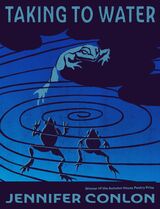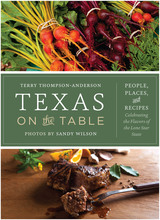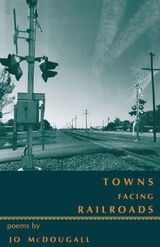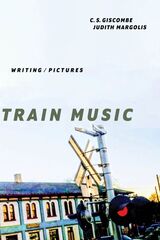6 start with T start with T

A tender imagining and devastating reckoning, Jennifer Conlon’s debut presents a poetry collection of gender questioning, concerned with the survival of trans and nonbinary kids who live in places that do not allow them to thrive. The speaker of these poems wrestles with and envisions a life beyond their traumatic childhood as a genderqueer child in a small Southern Bible Belt town. Through retelling and reinterpreting moments of sexual shame and religious oppression, while navigating impossible expectations from a gender-binary society, Conlon shows readers that queerness and the natural world are inseparable. In their poems, Conlon comes to reject oppressive patriarchal figures, turning their gaze toward the natural world that catalyzes dreams of possibility, transformation, and safety—wasps protect them, an oak tree contains a new god, and flathead catfish guide them to a newly imagined body. Through thick North Carolina woods, Conlon searches for a language to celebrate queerness, finding it in ponds, hillsides, and within themselves.
Taking to Water was selected by Carl Phillips as the winner of the 2022 Autumn House Poetry Prize.

With a bounty of locally grown meats and produce, artisanal cheeses, and a flourishing wine culture, it’s a luscious time to be cooking in Texas. From restaurant chefs to home cooks, Texans are going to local dairies, orchards, farmers’ markets, ranches, vineyards, and seafood sellers to buy the very freshest ingredients, whether we’re cooking traditional favorites or the latest haute cuisine. We’ve discovered that Texas terroir—our rich variety of climates and soils, as well as our diverse ethnic cultures—creates a unique “taste of place” that gives Texas food a flavor all its own.
Written by one of Texas’s leading cookbook authors, Terry Thompson-Anderson, Texas on the Table presents 150 new and classic recipes, along with stories of the people—farmers, ranchers, shrimpers, cheesemakers, winemakers, and chefs—who inspired so many of them and who are changing the taste of Texas food. The recipes span the full range from finger foods and first courses to soups and breads, salads, seafood, chicken, meat (including wild game), sides and vegetarian dishes, and sweets. Some of the recipes come from the state’s most renowned chefs, and all are user-friendly for home cooks. Finally, the authors and winemakers tell which recipes they turn to when opening their favorite wines.
This delicious compilation of recipes and stories of the people behind them, illustrated with Sandy Wilson’s beautiful photographs, makes Texas on the Table the must-have cookbook for everyone who relishes the flavors of the Lone Star State.

This is a twentieth-century reissue of a distinguished book--a collection of the impressions and experiences of European travelers to America over three centuries, revealing much about the changing viewpoints of Europeans toward the United States.
Oscar Handlin has added a new preface, written from the perspective of 1969. He points out that in 1919 when This Was America was first published, strains among the wartime allies had already appeared, but they had not weakened the memory of joint efforts to defeat Fascism. Anti-Americanism was not yet widespread.
Europeans generally have tended to see in the United States developments which they either disliked intensely or cherished devotedly, and quite naturally their accounts of travels through this country have reflected their feelings. But, however biased, their reports help bring into perspective the troubles of the present as they provide valuable insights into the problems of the past.
The authors of these papers came from many walks of life. They were businessmen, land speculators, merchants, government officials, exiles, artists, students, and priests. What they wrote has a directness of perception and expression that allows both the Old World temper and the New World atmosphere to come vividly alive. Their subjects are as varied as the interests that led them to America.
Here are observations on the country's physical beauty and spaciousness as well as on its social and governmental institutions. More significant, however, are the observations on Americans as individuals, their domestic manners, their ways of life, their adaptations to the new continent and the new society. Oscar Handlin gives us the very cream of their comments, preceded by an introductory paragraph and so organized as to tell an orderly and connected story of American social history. The result is a well founded, entertaining commentary on the United States.

In her second book of poetry, Jo McDougall takes her readers to the dusty prairie towns of the central states, places where the flat terrain belies a complex human landscape. In short, dceptively simple lines, McDougall can so keenly trace the lineaments of place and era that her subject stands before us, its essence displayed and made timeless.
Quietly, with an almost aphoristic bit, McDougall writes about ordinary lives and small towns in a way that her readers may never forget.

Late in the fall of 2017, poet C. S. Giscombe and book artist Judith Margolis boarded an Amtrak train in New York City and, four days later, stepped off another train at the edge of San Francisco Bay. Giscombe was returning home to California to address an all-white audience on the problem of white supremacy, and expatriate Margolis, accustomed to a somewhat solitary existence, was visiting the United States and making collages. Traveling together, they each turned their train quarters into writing and drawing “studios” where they engaged in conversations and arguments and shared experiences of the discomforts and failures of recent times.
Their original intention had been to travel west and document, in journals and sketchpads, the complex, charged American landscape, but as the trip progressed—and in the months afterwards—the project took on a new shape. Train Music, the book that resulted, recollects and explores the century’s racial and gendered conflicts—sometimes sensually, sometimes in stark images, sometimes in a “mixed economy” of poetry and prose.

Winner of the 1998 Ohioana Poetry Award
Skilled at both extended narratives and intense, intimate lyrics, David Baker combines his talents in his fifth collection of poems. Working in syllabics, sonnets, couplets, and free verse, Baker can write unflinchingly about love, illness, madness, and perseverance.
His small towns are the burgs of the Midwest, where there is a constant tension between a future that’s coming and a past that may never vanish. The grocer on the corner now carries mango chutney, and the city council must decide—Wendy’s or wetlands.
From these rural towns, Baker evokes lovers, mothers and fathers, highway workmen, hospital patients, and the long dead. He spots the inner struggles of everyday living, as in these lines from “The Women”: “there comes a rubbing of hands, and not as in cleaning. / As when something’s put away, but it won’t stay down.”
Regional in the best sense, Baker’s poems capture the universal human commerce of love and conflict enduring under the water towers and storefronts of America’s heartland.
READERS
Browse our collection.
PUBLISHERS
See BiblioVault's publisher services.
STUDENT SERVICES
Files for college accessibility offices.
UChicago Accessibility Resources
home | accessibility | search | about | contact us
BiblioVault ® 2001 - 2024
The University of Chicago Press









